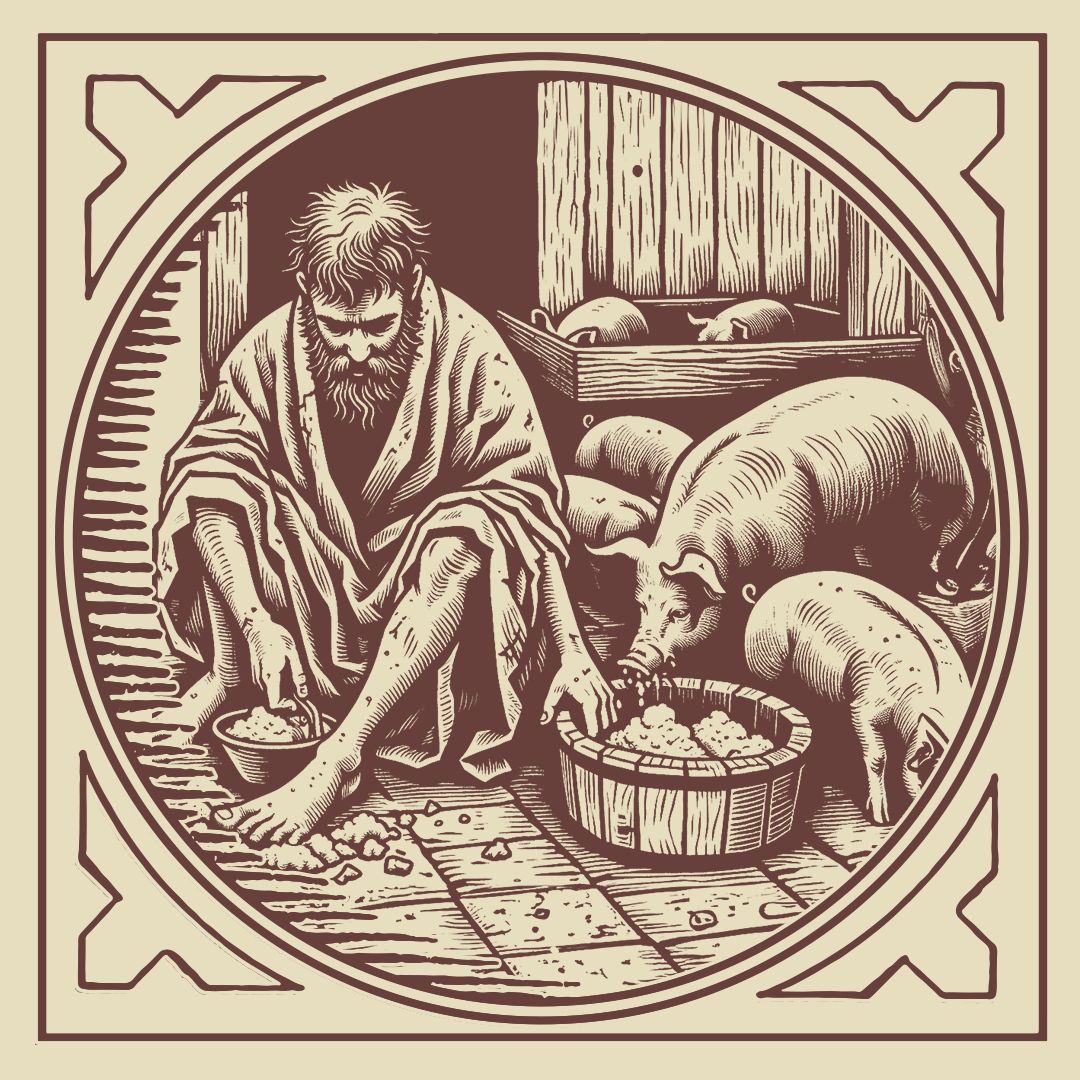
Who Are We Being Called To Forgive?
In a previous post, I explored the parables of the lost sheep and the lost coin, leading us to the profound and compelling parable of the prodigal son in Luke 15. These parables, meticulously placed side by side — lost sheep, lost coins, lost sons — are not just about individual salvation but also about a radical call to forgiveness and the breaking down of self-righteous barriers that separate us from truly embracing the lost.
Consider the Gentile nations, represented in these parables as the wayward sheep and the valuable lost coin. These images beautifully capture the essence of souls distanced from God, yet deeply cherished and sought after. This theme reaches its zenith in the parable of the prodigal son. Here, the younger son, representative of the Gentiles, takes a drastic step, severing ties with his father and squandering his inheritance in reckless living, only to find himself in utter despair among pigs — a potent symbol of his spiritual and moral decay.
Yet, the focus of this story isn’t just on the son’s rebellion, but profoundly on his return and the father’s response. When the prodigal son, broken and destitute, decides to return home, he is met not with the expected scorn or retribution, but with a father’s boundless love and forgiveness. This father, an archetype of our Heavenly Father, does not merely accept his son back but celebrates his return with unbridled joy.
This narrative mirrors the older son’s reaction — akin to the Jewish response to the inclusion of Gentiles and sinners. Here, the older son, embodying faithfulness to religious law and tradition, is contrasted with the father’s grace-filled embrace of the repentant younger son. It’s a vivid depiction of the clash between legalistic righteousness and the scandalous grace of God.
As we delve into this parable, we are confronted with a poignant question: Do we resonate more with the older brother, holding onto self-righteous indignation, or with the father, who exemplifies perfect mercy? I tell you, I thought I had forgiveness down, then I met Heidi Baker, an extraordinary woman whose stories of compassion and self-sacrifice challenged my understanding of mercy and grace. In a recent interview, Heidi recounted powerful miracles, including an account from Mozambique, Africa, where a violent Muslim terrorist group, Al-Shabaab (ie ISIS), persecuted many in her church community. She shared a story of a pastor whose daughter was beheaded by Al-Shabaab. Remarkably, he visited the prison where her murderers were held, forgave them, prayed for them, and shared the gospel with them.
This story made me realize that I might be more like the older brother, harboring unforgiveness for sins I deem too great for God’s mercy and therefore unworthy of my forgiveness. Witnessing the transformation of these men and women has helped me see my own self-righteousness. It raises the question: Is there someone in your life that God is calling you to forgive? The world is indeed a sinful place, and God has called us to seek out the lost, who are indeed sinful people. But this is not merely about seeking; it’s about transforming our hearts to align with God’s heart. Just as the father in the parable demonstrates unconditional love and forgiveness, we are called to extend the same grace to others, regardless of their past. Our mission is not only to seek the lost but to welcome them back with open arms, embodying the love and forgiveness that we ourselves have received through Christ. It challenges us to look beyond our prejudices and preconceptions, to see individuals not as irredeemable sinners, but as beloved children of God, deserving of grace and mercy. In doing so, we reflect the heart of the gospel, which is reconciliation and restoration, not only between God and man but among ourselves as well. So, let us ask ourselves: who are we being called to forgive? How can we extend the grace we’ve been given to others, especially those we might think least deserve it? In this, we truly become ambassadors of Christ’s love and instruments of His peace in a world desperately in need of both.
Visit our home page: https://kingsfellowshipchurch.com/
See more about our city: https://adaok.com/
